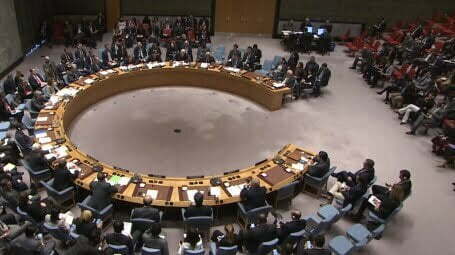It is hard not to despair over UNSC Resolution 2334, and not because it lacks political justification or is bad in principle. Obama was perfectly justified in allowing the resolution, which declares Israel’s settlements in the West Bank (including East Jerusalem) unlawful, to pass.
After all, Israel’s right-wing government had been dismissing his administration for years, both rhetorically and in practice – despite the fact that it was one of the friendliest US administrations ever, in terms of military aid and diplomatic support for Israel (especially at the UN). Obama’s revenge is understandable. Is anyone surprised that this is what you get for acting ungratefully?
The resolution is good, in principle, because Israel needs to be saved from itself. Although the wording of UNSCR 2334 is banal and says almost nothing new, it is a step in the right direction, towards justice. If Israel had a worthy opposition, the leaders of the Labor Party would applaud the US and the UN for reaffirming the distinction between Israel proper (within the 1949 Armistice Line) and the settlements. What they did, instead, was criticize the resolution and exploit it for their usual pointless tactic of attacking Netanyahu for “failing Israel” at the UN. That is not opposition, it’s cowardice.
It is hard not to despair over UNSCR 2334 because it could have immensely helped Israel, by putting a spoke in the wheels of the settlement project, had it passed eight or even four years ago – rather than a month before Obama made way for Trump. It should have been the opening statement of an incoming administration, not the parting shot of a president ending his term.
The resolution will be worthless unless the US pushes to have it serve as the basis for a coherent, effective policy that will force Israel and the Palestinians to accept the meaning – and not only the rhetoric – of ‘two states for two peoples’.
As Obama’s swan song, UNSCR 2334 will remain what it was: a short-term act of sweet revenge against a brashly confrontational Israeli right-wing government. Will Trump’s policy follow in the footsteps of the resolution, or will he do everything he can to empty it of meaning? Will Europe, troubled by radical Islamic terrorism and the rise of the right wing (including in the US), find this the right time to adopt an inflammatory policy regarding Israel and the US?
Eight years of Democratic feebleness on Israel-Palestine have left their mark. Instead of taking a firm stand, the Israeli opposition fell in line with this inefficacy. Politicians from Israel’s Center-Left vied to outshout each other in condemning UNSCR 2334 – mentioning the UN and Netanyahu in the same breath, as though the two share the same goals. In line with its general moral deterioration, Israel’s establishment media bemoaned the resolution and took up an anxious vigil to await salvation at the hands of Trump.
Instead of giving Israel a much-needed slap in the face eight (or even four) years ago and setting the tone for a new legal and diplomatic approach to Israel in the international community, Obama’s last-minute act was largely an affront to Israel’s right wing and to the incoming US administration. In Israel, this will lead to retaliation against the UN, the Left and, of course, the Palestinians. The Jewish Home Party’s plan to annex the West Bank will have never looked so appealing.
Unlike some of my colleagues, I do not fear “international pressure” on Israel. Pressure is a resource. Aid can promote a particular policy; withholding it can prevent implementation of another. The US has helped Israel in innumerable ways and pressured it in countless others, including at critical junctures in our history. Many such instances can be found in the annals of Israel and documented in government protocols.
I believe that the only mistake is to see aid or pressure as the be all and end all of Israeli politics. Pressure cannot bring about peace or end the occupation. What it can do is offer diplomatic and moral support for progressive forces within Israel and provide them with ammunition for their domestic political battle. In the same vein, lack of pressure signals to these forces that there is not much point in making an effort, since Israel’s friends in the world will intervene to save the “Jewish” but not “democratic” aspects of the state.
UNSCR 2334 is too little, too late. The price to be paid will not be exacted in the future – we are already paying it. The resolution has not made our work easier. In fact, it may have done the opposite.
Translator: Michelle Bubis


















